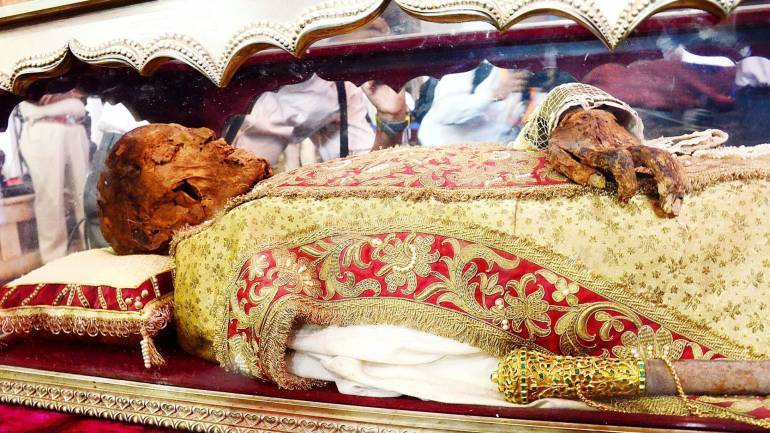India: Cardinal Filipe Neri Ferrao invites pilgrims to prepare for Exposition of St. Francis Xavier's Relics

Filipe Neri Cardinal Ferrao, Archbishop of Goa and Damo, invited pilgrimages and spiritual preparations for the Exposition of St. Francis Xavier's Relics, which will take place from November 21, 2024, to January 5, 2025.
The Exposition, which comes around once every 10 years, is a mega event for making travel and spiritual plans, especially for foreign tourists visiting Goa, western India.
The dates of the most recent solemn exhibition (XVII) were November 22, 2014, through January 4, 2015.
The Basilica of Bom Jesus, Old Goa, brings down St. Francis Xavier's holy remains, housed in a silver casket, for exhibition every 10 years.
During the Exposition, a procession carries the mortal remains to the Sé Catedral de Santa Catarina, also known as Se Cathedral, the cathedral of the Latin Church Archdiocese of Goa and Daman and the seat of the Patriarch of the East Indies, for veneration.
By making the news early, Cardinal Ferrao hopes to make things easier and inspire a large turnout for this important occasion.
St. Francis Xavier, a Jesuit, was born in the town of Xavier, Spain. He was a Spanish Catholic missionary and saint who co-founded the Society of Jesus. He played an important role in establishing Christianity in India, the Malay Archipelago, and Japan.
The "Apostle of the Indies," St. Francis Xavier, died on December 3, 1552, on Sancian (now Shangchuan) Island in China.
On October 25, 1619, Pope Paul V beatified him; on March 12, 1622, Pope Gregory XV canonized him.
After being named co-patron of Navarre in 1624, St. Francis Xavier, one of the greatest missionaries in history—often likened to Paul the Apostle—left a legacy.
Radio Veritas Asia (RVA), a media platform of the Catholic Church, aims to share Christ. RVA started in 1969 as a continental Catholic radio station to serve Asian countries in their respective local language, thus earning the tag “the Voice of Asian Christianity.” Responding to the emerging context, RVA embraced media platforms to connect with the global Asian audience via its 21 language websites and various social media platforms.













